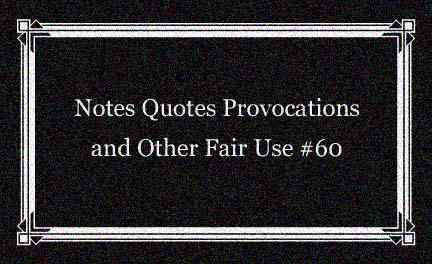

3 November 2002
and back again
I drive 900 kilometres from Zevenaar to pick up G+R+r in the Hague and return us to the Moulin. Yesterday was Zevenaar-Maastricht v.v.: another 360 kms. All the time we drive under great skies. Today's sunset is a blast of pinks, oranges, greens, purples and greys, turning to deep blue ink. The way the clouds are divided in packs and flocks, where the mass and where the open space is, directs the light and colors it gold or silver. We see linings, rays and rainbows. At home we find some of the five remaining cats, Ms. van Sitters in a very clean place, all plants entered because already nights were freezing, Mr. van Sitters in bed with funny tummy because he spent too much time on top the water wheel in a damp environment. I open a bottle of Coulange la Vineuse and eat a chunk of the old Gouda we brought, Opening the 01Book I find a subsidy request I should finish tonight. This is where I live.
|

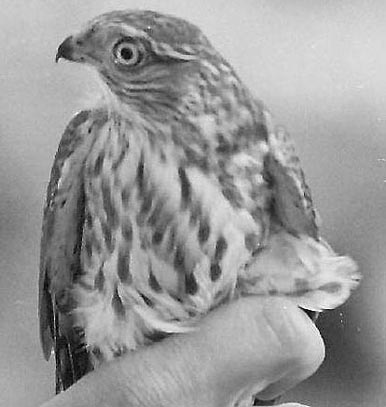 
31 October 2002
fly focus
Edited once again Een onbetekenende tijd, 'petty period', the online version. From 'transport' in NQP60 I'll move to 'migration' in #61. Hence the hawk. I downloaded falconry too. Back to the animal kingdom and what we to do with it: it's the way we screen.
Some things are getting clearer. I'm coming of age. The only flipping benefit to expect from that poor fact is some things to get clearer. Or so it seems. That clarity will not last for ever. Like any observation, it is a focus. At different ages you can allow yourself different focuses. Like the focus you allowed yourself at age 17, or 29, or 40-something. Focus something.
Doesn't it look like the hand triggers the hawk in the photo? Did you ever hold a live bird? It's firm underneath its feathers, there's bone structure inside it. Bird skeletons are the brightest.
|
post scriptum
Rather than 'things getting clearer' (how obscure can one be), ones increasing recognition of how the world operates is the result of a different selection from the facts of life and different ambitions with that selection. Events by themselves are not necessarily getting clearer, or more predictable — it is the variations on themes, their relations, the patterns in which they occur, the natural growth of arguments from immature to overripe, that one is familiarizing with over a lifetime. For life's recurring events there's all shades of grey between boring and comforting. Moods rule ok.
|

30 October 2002
ben jij die creatieve duizendpoot?
venue feeds venue
This massive media address is a 24/7 jingle. One mix, one media doesn't differentiate along disciplinary lines, attention concentrations, or consumer commodity saturation. One alarming prizewinning media mix hosts any other alarming prizewinning media mix, in constant attempt of content complicity, cross-breeding one hybrid commodity after another. To believe mass media to be critical towards its products or audiences is an illusion. Venue eats venue feeds venue. Always eager to know where formats stumble upon their horizon, or less common, break to a next level of sophistication, we nevertheless scan the throughput in a non-attentive way, as uninterested in particularity as our media are.
moreover
The Internet was sold to 98% of its current users as a commodity and is used and appreciated accordingly. What to build on top of it to replace or at least complement it? How to go about to make it the personal publishing venue we would prefer it to be? Did we already, within the first 10 years of its public performance, lose it to a lowest common denominator market which satisfies itself with second and third best products? Look beyond the tiny tribal culture of principle and experimental publishing and what do you see? Is the glass 98% empty or 2% full? Let's get more people to fill it, to move their content here. Make publishing a kindergarten play and keep it the prime goal of a lifelong educational and professional curriculum.
Are we not convinced then, of the medium's massive possibilities to lodge and connect popular content which forms the bottomline of social, political and spiritual interaction in the simple everyday formats of all its practices? It may be not what we imagine that you and me do when we do what we do best — and the only doing good is in doing what one does best — but it is out there as the infinite source of human life and attention, even devotion. It is our children's children as much as it is you and me. Without it what we do best would make no sense at all.
The basic economic resource -- 'the means of production,' to use the economist's term -- is no longer capital, nor natural resources (the economist's "land"), nor 'labor.' It is and will be knowledge. The central wealth-creating activities will be neither the allocation of capital to productive uses, nor "labor" -- the two poles of nineteenth- and twentieth-century economic theory, whether classical, marxist, Keynesian, or neo-classical. Value is now created by "productivity" and "innovation," both applications of knowledge to work.
(Peter Drucker, Post-Capitalist Society)
jingle
Navigate haha jaja. Naaah nah nah nah...
note to self
Karen Armstrong, 'Faith after September 11', lecture, Maastricht University, Minnebroedersberg Aula, 12 November 8pm. Free entry.
(and Tim Rose)
|

28 October 2002
it's a fair wind that blows against the empire
anti-mobility
Funny day. After yesterday's storm still the public transport is lame. We could not return from Amsterdam last night. Lucky accident today to have to change to a bus for the Ede/Wageningen-Arnhem trajectory, which takes us along splendid tree and heather bordered lanes.
|

26 October 2002
lifelong pacifsm
not in our name
We join the anti Iraq war march in Amsterdam. History repeats itself with another president but same propaganda. Some 40 years ago I was in The Hague, protesting the Vietnam war on my dad's shoulders. I vaguely remember the event along with my parents' other political activities at the time. My dad during several years was the local chairman of the PSP, the Pacifist Socialist Party, in Wassenaar, that renown billionaires' resort next to The Hague, where he taught a French class at the Rijnlands Lyceum in his earlier professional carreer, meanwhile studying sociology at the Leiden University. Beyond the politics which I was obviously rather unaware of, it introduced me to the colourful artistic and politically active circles of this well-to-do community, like in typographical design revolutionairies Piet Zwart's and Paul Schuitema's studios. The latter I remember vividly showing me a color system in his first floor study located at De Lus. Other artists around included Paul Citroen in whose portrait drawing class my mother was.
In later years, after our move from the Middelweg 138 to Hugo de Grootstraat 29 on August 3, 1963, my parents co-founded Open Appèl, the united Wassenaar left including D66, Democrats (19)66, to run for local government. I don't think he was interested in a seat in the village council though. I remember he was an admirer of Bram van der Lek, one of the van der Lek/van der Spek double PSP opposition members in Dutch parliament. Politics came natural to me as a kid, it was in my parents' daily discussions. Our newspaper the Nieuwe Rotterdamse Courant — daily serving Marten Toonder's superbly illustrated Olivier B. Bommel story which my dad read aloud after dinner — was a liberal newspaper, which 'only showed around elections' according to him.
I phoned my dad last night at the hospital where he is in for minor problems. He turned 80 last year. We don't have a frequent contact, but at such and luckily some happier occasions. After he had praised me for joining today's rally he told me he would want to file against both George Bush and Ariel Sharon and Osama Bin Laden at the International Court in The Hague, to sue them for a lasting disruption of the world political order, if he was the Platform tegen de Nieuwe Oorlog, the 'platform against the new war', organizer of today's demonstration in Amsterdam, uniting different political and religious fractions. My dad learned me to respect no authority but arguments. In compensation Wassenaar and the Rijnlands left a lifelong bedazzlement with straight long blond hair, pearl necklaces and red woolen sweaters over white blouses with me.
At the same time when 'a couple of thousand' concerned round the center of Amsterdam against a war on Iraq, and so happens in other Western European and US cities, in Moscow Russia looses another battle in its own version of the war on 'terrorism', today's customizable enemy, in the theater where 700+ citizens are held hostage by Chechen rebels since four days. During the liberation storming by elite forces 117 hostages and some 50 Chechen die. The unknown gas the troops fill the place with before they storm it Saturday morning, after the fighters executed two hostages and were expected to continue executions, not only drugs but kills the weakened on both sides.
|

24 October-3 November 2002
all it takes is one detour
moulin to moulin via nl
11:30-20:00 drive St. Germain des Bois-Zevenaar. Drop G+R+r and two kittens with her parents. Pick-up email and look up www.ns.nl for the next part of the trip. Leave the car. 21:15-00:05 train Zevenaar-Maastricht. On the train I read my mail (Giselle, Joke) and finish 22, 23 October. Battery depletion related frequently interrupted telephone conversation on the Roermond platform with Joke. More on this week's event horizon to be expected.
|

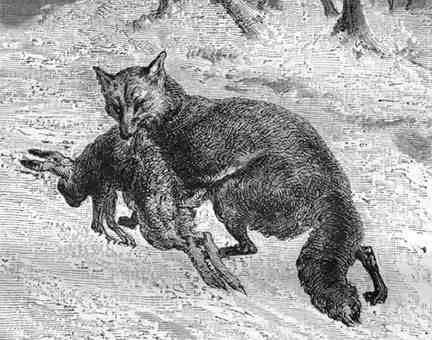
 l'esprit des bêtes: le renard doué d'une
l'esprit des bêtes: le renard doué d'une
finesse d'odorat exquise, d'une vue perçante,
d'une patience à l'épreuve et
de l'esprit d'association...

22, 23 October 2002
It's the common cold, stupid!
I dramatically shorten and partly rewrite anti-obscenity. It becomes a different text, courtesy Sven's editing.
meanwhile
We prepare to leave for NL. Clean the house to hand it over to the van Sitters family. The garage workshop is in a mess. Since Mr. van Sitters will want to work on the water wheel I clean it out, laying out his tools. Taking out the enormous heap of sawdust which he left here two months ago... After straight downpours last night today the sun is out bright to reflect on the yellows and oranges around the garden. There's one Dahlia out, the first and only one, G. takes my photo with it. Why does everything always look much more attractive when you are about to leave? Why do you realize you spend too little time taking everything in, only if you do a last checking round?
|

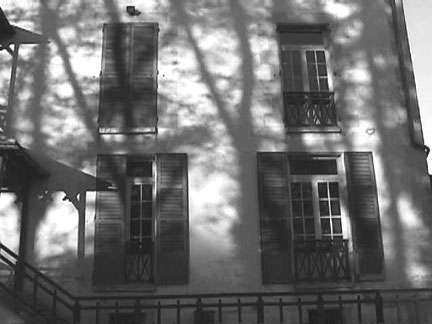
 the way we screen: Moulin skin
the way we screen: Moulin skin

21 October 2002
Discotheque never stop.
anti-obscenity
Actually it is not about obscenity but about anti-obscenity: the dream of total communication. The text I finished this morning at 1:30 and .rtf mailed to Sven Lütticken, editor of De Witte Raaf, who had phoned in around 10pm to see what was up. I had reported both my flu and the word count and promised something. Then the weather changed and wind rose after the most favorable conditions of a silent autumn sun and soft breeze. Things started to move around the garden and around the desk. The pile of reference stopped amounting. '...en elke keer valt de vorm terug in de chaos.'
The basic argument of the soon to be linked here full text of Een onvolmaakte tijd ('an imperfect time') holds that societal practice in general and cultural production more specifically has to come up with plenty new forms for the exploding rise of popular content, both to simply turn it communicable and to take it from the street where it is most prominent today, to another level of understanding. Not to 'emancipate' it or refine it, to become culture or politics, but to reinvest it in a proper sense, not to waste it against old forms of representational media. In the essay I take politics, (information) media and the arts and letters as three core productions in a society where all borders will have to open and all movement of people, goods and data have to be freely possible in order to support the global redistribution of means and knowledge, which is at hand anyway and does not follow the guided emancipation that Western powers would like it to.
Nothing resembles the life of this new humanity more than advertizing footage from which every trace of the advertized product has been wiped out. The contradiction of the petty bourgeois, however, is that they still search in the footage for the product they were cheated of, obstinately trying, against all odds, to make their own an identity that has become in reality absolutely improper and insignificant to them.
Giorgio Agamben I quote at length again, trying to face his reasoning. He's so bright at points, so obscure at others, so idealistic at times and so no detour right if you care. I wish I would have heard him speak.
|

19-20 October 2002
Autoren werden sich Nützlich machen als Lotsen im Ozean der wissbaren und zusammenstellbaren Dinge, als scouts in der informatisierten Welt, als Navigationsberater, als Infonauten, als Dokunauten und als Trainer für Verkehrsfähigkeit in einer Welt, mit deren Grösse und Abentuerlichkeit noch immer kaum jemand ernsthaft rechnet.
the aegis of information
Peter Sloterdijk's romantic vision of the author reminds me suddenly of Perelman's teacher as a 'guide by the side', not a 'sage on the stage' (Lewis Perelman, 'School's Out'). Why is this vision romantic? It presumes a 'role' for the author, even a useful role, rather than just letting her or him be, whatever and however s/he constitutes herself or himself in her or his artistic work and in interaction with the proper mechanisms of the productive-reflective circles s/he adheres. Meanwhile leave the rest of us, susceptible or not as we may be for sound advice and information sharing and context building and daring speculation and whatnot, lovers of Art and Letters for sure, be, too, without pushing for a new hierarchy to help any player identify in today's cultural production under the aegis of information.
(Only) ask the artist what s/he does. Qu'est-ce que vous faites?
Importantly, the author is no teacher, in the sense that s/he would replace the proper teacher, just as much as the 'guide by the side' would not replace the 'sage on the stage'. Such arguments rise when we witness a singularity like the momentum of informationalization, when an exploding volume coincides with infinite distribution. Technology does not guide nor fix this momentum, but follows it, at best coincides with it. The history of mobility and globalization goes back quite a stretch, with the history of its technologies. (Information) technology, rather than forcing global mobility, just-in-time provides it with new lanes, infrastructure and aggregate for its restless traffic. Instead of at that supreme moment of delivery change the roles, my guess at a proper strategy would be to instantly benefit from any role's possible redefinition and expanding field. The history of artistry is about ever expanding its proper material and expression, always adding new venues, more than constantly shifting roles to fit emerging occasions external to the actual process of making art, writing, forging images, objects and stories. Artists to remain artists, teachers to remain teachers, etc., perfecting communications between the trades for better collaboration and competition, is a better strategy for cultural production than morphing to the occasion of so-called powerful (media) forces. 'What can be more powerful than artistic creation?', I could add, if I would want to close a process which to me is exactly as powerful as creation: communication. Creation and communication: an endless swaggering between 'content' and 'form'. "...and ever again form falls back into chaos", Witold Gombrowicz in Dominique de Roux, 'Entretiens avec Witold Gombrowicz', 1968.
I hit on Sloterdijk as one of the 'usual suspects' for the obscenity text (11,228 words now, including long quotes — some 6,500 to get rid of and save for future use). He lines up with Agamben, Gombrowicz, Herbert Schiller, Valéry, Virilio, on the desk. If I would try to make sense of my company here, I would say that it offers a slice out of my library which represents <APPROPRIATE>forms of engagement by artists, in the process of drafting and crafting, never properly finishing or fixing, using its products as half-products upon which to proceed one's becoming an artist, at the cost of being one — a thought which is so much older than the lack of control which supposedly comes with digital media's datafication.</APPROPRIATE>
Especially the last lines of this entry's leading quote, about a world which' size and adventurousness still no one seriously takes into account (like underhyping the Internet, basically), is too true. It may run counter to Virilio's 'ecologie grise', where he reasons that the world is getting smaller as a result of (the speed of) informationalization. That, I think, is only a temporary effect, and I agree with S. on size and thrill of new worlds emerging.
world resonance
Rather than smaller, the world gets ever more concentrated in infinite locations, where 'world gathers', in a very precise local configuration different from whatever world gathers at any other location. The world at large getting larger, and less fixed. Infinite world migration, of people, goods, data, will result in endlessly detailed world spaces, all 'around the world', all different all of the time.
An idea of acoustic space as a model for a never stable situatedness of informational and material 'world gathering' resonates with McLuhan's notion of it, which is characterized (in 'The Global Village') as "centers everywhere and margins nowhere". At linked site, a summary of attributes of Visual and Acoustic Space:
Visual Space
left hemisphere of the brain
linear, sequential; based on the line, plane, grid, perspective. heightens
response of the eye. linear conceptualization, causality.
Acoustic Space
Right hemisphere of the brain.
gyroscopic, 360 degrees, reflective, reverberant, simultaneous. heightens
response of the ear (balance). oral culture, myth, time as a cycle.
Acoustic space and for that matter olfactory space challenge the mediation of experience and provide highly marked ambitious models for mediated communication. While I attach great importance to two-dimensional intervention (spatial, not necessarily linear, but occuring in one reading plane, possibly time based, in two dimensional movement), in spatial investigation, at the same time I consider the final challenge to all techniques of experience to be founded in the five spaces of Sight, Hearing, Touch, Smell, Taste.
check
- World Soundscape Project introduction
- world soundscape project Tape Library
- Atlas of odor character profiles
|

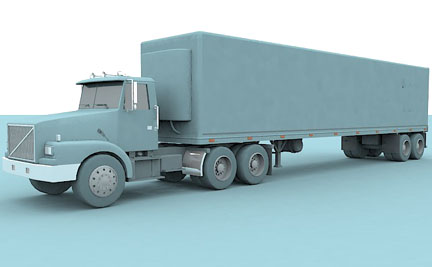
 mind the grey trucks rolling in
mind the grey trucks rolling in

17 October 2002
Sic Transit
representational power
After a post-WWII record minimum span of 87 days in power, yesterday the Dutch government resigned as a result of general political ignorance. Late Pim Fortuyn's LPF, in the day before yesterday's polls sliding from their current 26 seats in parliament, to a dishonorable 4, saw its 'politicians' spending their first 87 days on representational democracy's stage struggling for positions of power, lacking the skill and experience to make any impression at all. Meanwhile they betrayed 1,6M voters' trust.
The worst we can expect for the upcoming elections is mainstream politics' arrogance, which immediately began showing left and right last night, when the campaigning started.
|
what's with this 'Society'?
The purpose of the World Summit on the Information Society, as stated in Resolution (A/RES/56/183), is to develop a 'common vision and understanding of the information society and the adoption of a declaration and plan of action for implementation by Governments, international institutions and all sectors of civil society'.
Sounds like an ambition. I'll see you in Geneva then, 10-12 December 2003.
Come again. The information society? The information part's not too hard to find. But for a society? Wouldn't it have to be built with the information, instead of around it, on or under it? You don't build an information society right on top a 'legacy of old books and old buildings' (Guy Debord, Comments on the Society of the Spectacle), nor following the popular adage that 'it' would 'want to be free' (free... from what? OK, from a price tag, possibly, for as much of it as its mass and home industries can allow to spare).
get real with information
Why couldn't its societies be built on how which information grows, forms and moves and why it does so, why it behaves exactly like that, between exactly those who decide to form an information society with it in the first place — one or another? Your information society is different from mine. How un-free exactly would an information society be, if it did not allow other information societies to emerge? And how vital will it be to put one next to the other and choose to roll yet another one. If information wants one thing, it wants to be shared.
If (the production and sharing of) information is to be (an act of) culture, prepare for many millions of societies to be built around its many million ideas.
|

16 October 2002
one world, capital mobility
How dislocated can one be? Old mobility meant to connect us to the world. Today with tourism sprawl, being connected to a world means something different. Western consumerism rubs into any local market around the world. Tawar tourism takes its commodity grazing to Ibizan night clubs as much as to Bangkok brothels as much as to Bali beaches. Tourism names the world its home — its house, its rules.
Hence 'one world, one card' doesn't imply 'one world, one budget' — or, contemporary colonization is as disruptive of home cultures as it is of exotic markets. Make no mistake. New colonialism is acts out extreme mobility, war is acts out extreme tourism.
What do you know? Would you believe I wasn't going to write that at all? It belongs somewhere else.

home voice
Voice covers ground. Moulin turf lives under a fertile layer of visiting and home voice. So what is mobility's promise to me? I can settle and/in drift with two ideas of it: 1 immediate interaction on a minimum footprint, micro-mobility, 'chest-to-chest' intimacy depleting my attention on maximum detail, maximum interpretation and maximum reproduction of this interaction in the interaction, like repeating its here and now presence, wherever it is that it finds me, at the particular instant; 2 uninterrupted, undisturbed connectivity tapping into dislocated voices listening/speaking in the void of communication space, checking the channels in 'phatic communion', equally sending, echoing and receiving, linking in and out, living biographies and curricula with remote peers, participating in a not-here-not-now of no one in particular addressed.
When the two meet, 1+2 life everlasting.
Interpunction Rules OK!?
reading over
- 'Een onvolmaakte tijd', De Witte Raaf #100:
Natuurlijk waren alle ogen op de Twin Towers gericht, op het juiste, het enige moment; natuurlijk draagt iedere Nederlander het beeld van Pim Fortuyn in een plas bloed op de parkeerplaats van het Mediacentrum mee — godzijdank zijn de media terplaatse als de geschiedenis kantelt, maar niemand hoeft vervolgens de ogen te laten dwingen naar de onverkwikkelijke beeldenstroom die door zulke gebeurtenissen op gang wordt gebracht. Dezelfde media die het nieuws garen blijken vervolgens de verwerking van dat nieuws op geen enkele manier te kunnen begeleiden, laat staan verzachten, of relativeren.
|

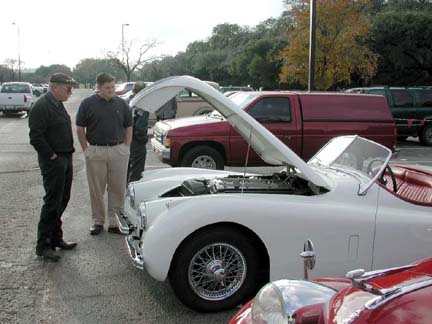
 jag gab
jag gab

15 October 2002
Show me your mobility and I'll tell you who you are.
NQPaOFU 60: Vehicle Issues
About transportation. About containers. About carriers. About mobility, migration, traffic, conduits, flow-if-you-say-so, breaks in presence rather than seamlessness. To begin with I'm advancing a day on clock time, breaking into tomorrow. Just by mistake. Mistaking this time for another time is no unusual inaccuracy. Little girls, little boys, never grow old.
Stay put with it.
Because I've charged NQP disk space with big loads of truck, carriage, other wheels 'n chassis images. Because I'm tempted to go buy that Landauer and carry it along with me and have it carry me along. Because I make many miles, on a road that leads from Moulin to Moulin. Because I am invited to rewrite slash edit this one piece that I wrote for a mobility conf back in 1999 — Year of the Move — with the Erasmus University, which is now to be continued in a book publication. Because moving in and out of inspiration is all we ever do. Because time comes to a halt in Arts and Letters.
Just for the format fix.
related
- anti-traffic (NQPaOFU 24)
- Micro-Containers (NQPaOFU 9)
Edit... software softly whispered.
wild edit
If I would search NQP's backlinks I could distil a wild edit (as in 'wild talent') of it. Retrieving and (re) publishing blog A's NQP, and blog B's NQP, or blog C's NQP would show different shared interest selections: different NQP's. I feel always privileged with every link into this publication. Thank you. Keep returning here. NQP A' and NQP B' and NQP C' are the better NQPs to me. I will come back to your turf and link to it in return. Keep an eye on your search engines.
Critiqued by who consider the weblog phenomenon a mere link for link's sake, incestuous activity at best, to me every link is an editorial act. I fantasized about this before. My weblog visiting routine has since changed somewhat, but I still wish existing software would include contextual backlink scans, gathering new context for everybody's publications, reframing it, ultimately replacing its original, but for the parts that were not linked to. Rather than in the blog back facility, which does only bring feedback and 'comment' to the site, and unlike simply scanning incoming traffic from its reference, reorganizing published material by its marked up reference in other publications would have my interest. In a future in which all publishing would be 'one site (per person) fits all' individually, (software based) editorial enhancements would have to serve content context, not simply allow guest book style visitor comment. Who needs to comment on a site, at that site, if s/he's got site?
'Wild Edit' to me is the state of emerging editorial diversity and flexibility in Personal Publishing Pandemonium times. Wild edit for the wild reader: the counter-fix for a counter revolution in media manufacture. It is whatever everything through whatever everybody's lenses — all links and more of them. Hardly chaotic yet only to be made sense of in continuous monitoring attention. Beyond zap mode, the wild reader follows reputational recommendation leads, to take his or her reading wherever, from the one editorial un-fix to the next.
Wild Edit I just forwarded to the Jan van Eyck Academie as my title for an upcoming 6 December's poster in the context of the Nypels Foundation design research challenge. More about that soon. Already schedule 6 December to come down to Maastricht if you would be interested to hear Gillian Crampton Smith, Annelys de Vet, Paul Elliman, Wouter Vanstiphout, Filiep Tacq and myself on design research principles.
|

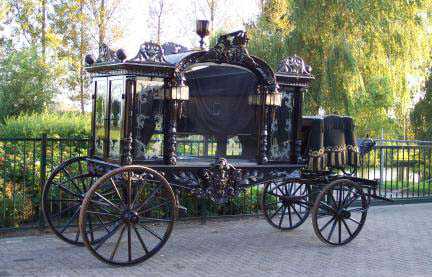
 for sale E22,000 at marktplaats.nl
for sale E22,000 at marktplaats.nl

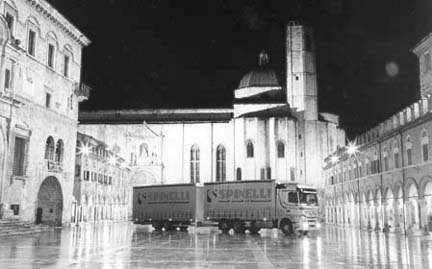
 Spinelli Logistica truck in old center
Spinelli Logistica truck in old center

|
|


